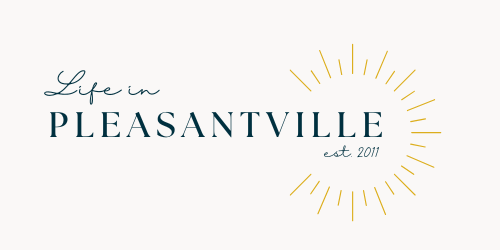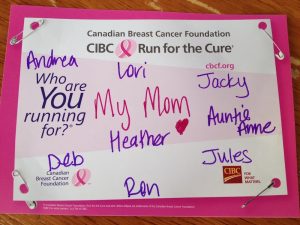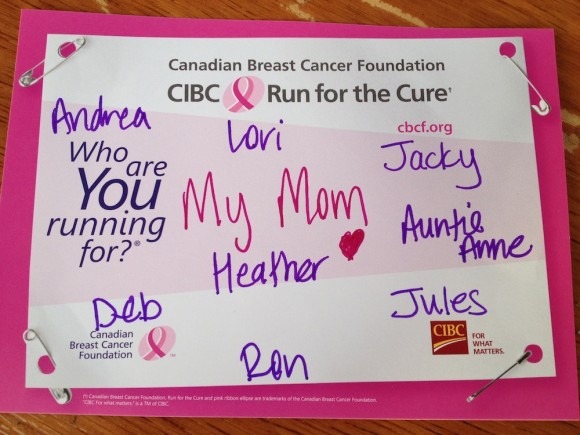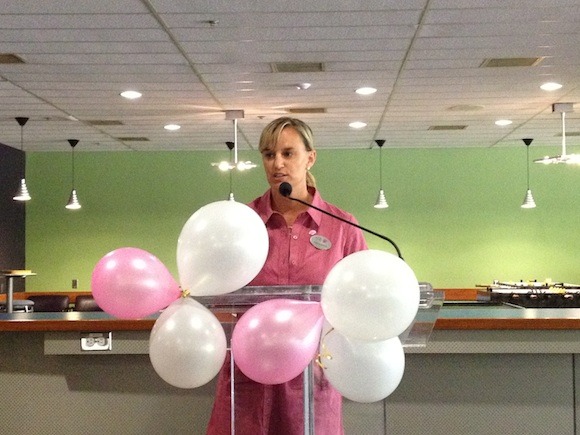by Amanda McNally
I may just may be a control freak when it comes to certain things and I LOVE information. So, it makes perfect sense that if we know there are things we can do to help prevent something, I’m in.
Knowledge is power!
This year I participated in the Canadian Breast Cancer Foundation CIBC Run for the Cure for the 15th year in a row. As I was filling out my “who are you running for” bib, it occurred to me that I have a lot of people in my life who have been affected by breast cancer. Too many, in fact. Luckily, I am happy to say that most of them are doing well. Awareness and early detection is key!
I spend a lot of time in my job educating people about the risk factors around breast cancer and ways they can reduce their risk. There are things you can’t control but if you’re like me, you’ll want to know what you can.
As much as I like to deny it, I am getting older. The two biggest risk factors for developing breast cancer are being a woman and getting older. I often hear people say that they aren’t worried about breast cancer because they don’t have a family history. This is not true. Actually, more than 90% of people diagnosed have no family history. Again, if you’re a woman and you’re getting older – you are at risk.
Non – modifiable risk factors (ones you can’t change)
• Age and gender (women are at higher risk but men do get breast cancer also)
• Early menstruation and late menopause
• Breast density
• Personal history of cancer
Here’s the good news. There are things that you can do that can reduce your risk. Keep in mind that there are cases where someone has done everything “right” and they still develop breast cancer.
Modifiable risk factors (ones you can change)
• Body weight – it is important to maintain an healthy body weight
• Physical activity – recommendation is 150 mins per week (30 mins, 5 times a week) of vigorous activity (breaking a sweat and elevating your heart rate)
• Healthy eating – 5-10 servings of fruits and vegetables and lower your intake of fats and sugar
• Smoking – if you smoke, quit and if you don’t smoke, don’t start
• Breastfeeding – this acts as a protective measure and breastfeeding for 12 months can reduce your risk 3-4%
• Alcohol – limit your alcohol consumption to 1 drink per day or less
• HRT – hormone replacement therapy, recommendation is to take the lowest dose for the least amount of time
• Take Care – know what your breasts normally look and feel like and report any changes to your doctor.
Prevention is so important. Make a pledge to do something important for yourself and those who love you and start taking action now. Your breasts will thank you.
Amanda is the Community Relations Coordinator at the Canadian Breast Cancer Foundation BC/Yukon Region. She lives in White Rock, BC with her husband Chris and two children Jacob (5) and Penny (3). Amanda’s passion for the cause comes from her desire to create a future without breast cancer so her children never know what it like to lose their mother to breast cancer. Follow her @mrsmandymac.




 Ten Blogs September 7
Ten Blogs September 7